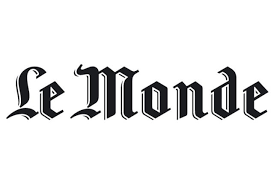Document type : article published in Le Monde (subscribers only)
Authors: Charlotte Arnal, Simon Coutel, Pauline Di Nicolantonio, Jean-Paul Peronnet, Elodie Vieille-Blanchard
Preview: In an article published in "Le Monde", eight groups and associations have called for the implementation of "mirror clauses" and the placing of limits on imports of animals raised on farms that show less concern for social, ecological and animal welfare standards.
The European Food Safety Authority (EFSA) has just published two scientific Opinions to restrict the suffering of laying hens and broilers. It recommends, among other things, an end to cage rearing and mutilation (beak and crest triming), a substantial decrease in density, access to the outdoors, provision of bedding and slower growing chickens.
Organisations in the poultry industry immediately responded to this unprecedented championing of poultry, fearing loss of competitiveness on the international market and increased imports from countries outside the European Union.
Currently, with international competition, the French poultry industry has come up against centralised purchasing agencies that keep prices low. Any changes that improve the lives of the birds are often costly for farmers, especially where infrastructure has to be adapted, exacerbating the problem of competition from foreign products. Reforms could then be counterproductive in France, further increasing the number of animals raised on farms where the only purpose of the living environment is to increase yields.
How, then. competitivity be achieved? The answer lies in another European Union measure, namely, the adoption on 13 December 2022 of the Carbon Border Adjustment Mechanism. This will allow for a tax to be levied within four years on imports of goods from non-European countries with less stringent standards in sectors that are the highest emitters of greenhouse gases (steel, cement, fertilizers, etc.).
A similar constraint could equally easily be applied to livestock standards in order to facilitate the implementation of EFSA's recommendations, which are intended to improve the lot of European animals. Following on from an earlier opinion on pigs and animal transport, others will soon be published on farmed calves, dairy cows, ducks, geese and quails. They will serve as a basis for the European Commission to prepare changes to legislation by the second half of 2023. [end of the part available without subscription].






